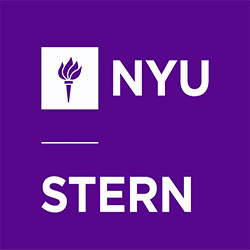Back in early June when Professor Anne-Laure Fayard introduced the concept of ethnographic research in her design thinking workshop for our NYC immersion class, was the first time I had even ever heard of the word. With English not being my first language, I had to look up what that word meant. I wasn’t the only one in my class new to the term either. So we had a great conversation with Professor Fayard on what it means, how it is typically done, and most importantly, why we should do it. First of all, here is my interpretation of ethnographic research:
“Popularized by anthropologists, ethnographic research is a qualitative method to study people’s behavior in their own real-life environment.”
In the business setting, ethnographic research is typically used to study customer needs and customer behavior. Over the last two and half months, we have heard so many times the importance of product-market fit. Whether in marketing class, strategy class, in speaking with entrepreneurs we met during our visits to various start-up incubators, or during the kick-off of our summer stern solution project, time and time again, we heard the number one reason a start-up or new product fails is that no customer wants to buy it. We have heard stories of hugely successful products coming from customer research, far from what the business originally intended, such as Swiffer sweeper (can you imagine the original product in-mind was a new floor cleaning detergent?). We have also heard stories of failed products due to the disconnect between customer needs and product such as PlayPump (a pump to be deployed in Africa that harnesses the energy of children playing on a carousel and uses it to pump water out of the ground).
How do we conduct ethnographic research then? There are two typical ways: ethnographic observation and ethnographic interviews. For the observation, one would go in the ‘field’ or an organization and watch people’s natural behavior in the environment. During our design thinking workshop, our group decided to address the walk-ability aspect of mobility in NYC as a smart city. The observation entailed us going to Astor place near Stern, watching how pedestrians navigated the subway exits, sidewalks or intersections, and summarizing common pattern of people’s behavior in their ‘natural’ state. We generated two insights from the observation. First, when people are lost at the subway station exit, they just follow the crowd without checking signs or maps for the proper route. Second, when pedestrians run into unexpected constructions they tend to cross the street in the middle of a block to avoid the construction. As it turned out in our ethnographic research, the top pain point for pedestrians in NYC is not uneven pavement, not accessibility for strollers or wheelchairs at the intersection, but construction ! None of our team members anticipated that in our brainstorming session!
The other type of ethnographic research is through interviews. This is definitely more challenging from our experience as we needed to find random users who are willing to talk to us. For our entrepreneurship class assignment, we had to interview twitter users, persuade them to download the twitter app if they didn’t have it installed on their phone already, and ask for permission to take a video of the phone or computer screen as they interacted with the app or the website. Since classmates are not allowed to be a study subject (that would be too easy!), my teammate Jim and I took a field trip to the World Trade Center and tried to find random strangers to participate in our interview. About 50% of the people said straight out loud they don’t want to talk to us. I was surprised this wasn’t higher, but I guess the student card helped (more on that later). About 30% of the people were willing to talk to us about their social media usage but not willing to download the app or let us video them using it, and the rest, about 20% became our amazing interviewees for the class project. Through listening to their description of how they use twitter and observing their body languages, we were able to see some patterns of how twitter is or is not meeting the needs of users. Stay tuned for our finished class presentation on this topic!
